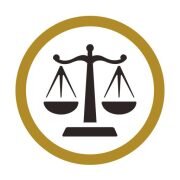Best Child Custody Lawyers in Durban
Share your needs with us, get contacted by law firms.
Free. Takes 2 min.
Free Guide to Hiring a Family Lawyer
List of the best lawyers in Durban, South Africa
South Africa Child Custody Legal Questions answered by Lawyers
Browse our 2 legal questions about Child Custody in South Africa and read the lawyer answers, or ask your own questions for free.
- Legal Gaurdianship Appointment
- I have a child who's been living with me for 3 months now. Social services have been at the child's house after school, reported/ logged a Form 22/23. Parents are struggling to take care of her and have agreed to appoint us as guardians for her. What do we need... Read more →
-
Lawyer answer by GAVEL & GREY LEGAL PRACTITIONERS
You will need the court approval on the legal guardianship.
Read full answer - Can a mother keep a caring father away from his child
- Can my mother of my child keep my child away from me
-
Lawyer answer by Attorneys
She cannot keep your child away from you unless there are valid reasons such as abuse.
Read full answer
About Child Custody Law in Durban, South Africa
South Africa’s Children’s Act of 2005 governs child custody law, covering a range of aspects including parental responsibilities, rights of the child, and the best interests of the child. The concept of joint custody, where both parents share equal responsibility and rights, is widely favoured as it is believed to serve the child's best interests, especially in Durban. However, the specifics of each case may differ depending on the circumstances.
Why You May Need a Lawyer
Child custody disputes are often complex and emotionally charged. Legal assistance becomes necessary when there is a disagreement between parents, when the safety and wellbeing of the child are at risk, or when a parent needs help understanding their legal rights and responsibilities. In cases where international jurisdictions are involved, a lawyer is essential to navigate the complexities of various legal systems.
Local Laws Overview
South African child custody laws are largely concerned with what is considered to be in the best interests of the child. This involves two main aspects - care and contact. Care refers to living arrangements, providing for the child, and making important decisions about the child's life. Contact refers to maintaining a personal relationship between the child and the other parent. In situations where parents cannot find a resolution, mediation is encouraged. If still unresolved, the case is taken to the court where a judge decides based on the child's best interests.
Frequently Asked Questions
What is the age a child can decide which parent to live with?
In South Africa, the law does not state a specific age when a child can decide which parent they want to live with. However, the court takes into account the child's maturity and ability to make an informed decision, typically the child's view is considered from the age of twelve.
Can custody rights be modified?
Yes, child custody agreements can be modified if there is a significant change in circumstances and it is in the best interests of the child to do so. For instance, if the parent with primary custody suffers from illness or has to move to a different city or country, the agreement can be reconsidered.
What rights does the non-custodial parent have?
The non-custodial parent typically has visitation and communication rights. They also have the right to be informed about the child's wellbeing and significant life events, unless there is a court order limiting these rights for reasons such as abuse or neglect.
Does the mother always get primary custody?
Not necessarily. While traditionally mothers were often granted primary custody, South African courts now take a gender-neutral approach, focusing on the best interests of the child, the child’s relationship with each parent, and each parent’s ability to provide for the child’s needs.
What happens if one parent does not abide by the child custody agreement?
If a parent disobeys a custody agreement, the other parent can file a complaint with the court. The offending parent could face penalties, including fines or a change in custody arrangements.
Additional Resources
Local child welfare agencies, family advocates, or social service professionals can offer advice and support. The Southern African Legal Information Institute (SAFLII) provides access to South African legal materials and court judgments.
Next Steps
If you find you need legal assistance in child custody matters, start by seeking a reputable family lawyer who specializes in child custody. Prepare to discuss your circumstances and desired outcomes with your lawyer, and gather all relevant documents such as prior agreements, court orders and evidence supporting your case. With this support, you can navigate through the process with a better understanding and stronger legal backing for your child's best interests.
Lawzana helps you find the best lawyers and law firms in Durban through a curated and pre-screened list of qualified legal professionals. Our platform offers rankings and detailed profiles of attorneys and law firms, allowing you to compare based on practice areas, including Child Custody, experience, and client feedback.
Each profile includes a description of the firm's areas of practice, client reviews, team members and partners, year of establishment, spoken languages, office locations, contact information, social media presence, and any published articles or resources. Most firms on our platform speak English and are experienced in both local and international legal matters.
Get a quote from top-rated law firms in Durban, South Africa — quickly, securely, and without unnecessary hassle.
Disclaimer:
The information provided on this page is for general informational purposes only and does not constitute legal advice. While we strive to ensure the accuracy and relevance of the content, legal information may change over time, and interpretations of the law can vary. You should always consult with a qualified legal professional for advice specific to your situation.
We disclaim all liability for actions taken or not taken based on the content of this page. If you believe any information is incorrect or outdated, please contact us, and we will review and update it where appropriate.

















